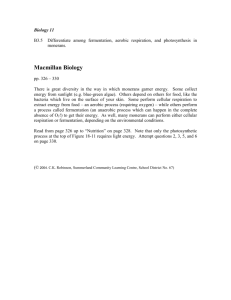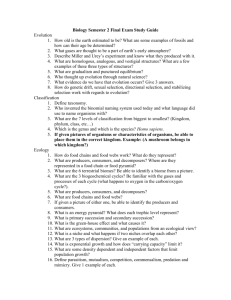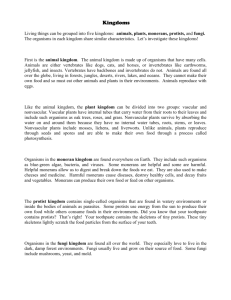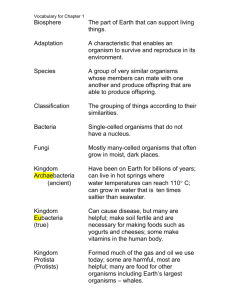Kingdom MONERA Phylum Firmicutes Phylum Cyanophyta
advertisement
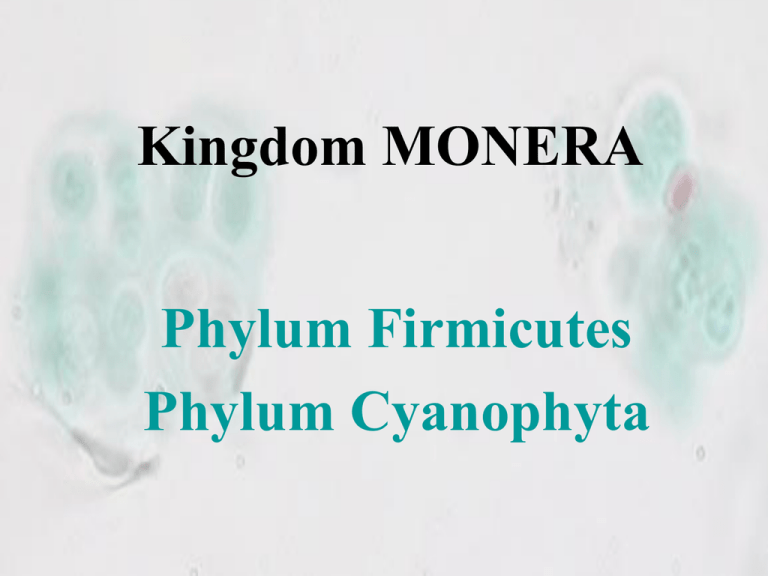
Kingdom MONERA Phylum Firmicutes Phylum Cyanophyta General Characteristics • • • • It is in some respects the largest kingdom. It contains the tiniest known cells. Members of the group are called monerans. It is estimated that monerans are more numerous and have a greater combined weight than any other living things on the earth. • Key characteristic which places organisms in the kingdom by themselves: they are all procaryotic. • Monerans thrive in places where no other living thing is known to exist. procaryotic lack membranes around their nuclei Interesting Facts • Been found in the atmosphere 20,000 feet up; they ride on dust particles. • Been found in hot springs at 185o F. • Been found in melted glacial water, below 32o F. • A single drop of water can contain 50 billion bacteria. • One gram of common soil contains from 1 million to 100 million of them. • Every cubic meter of air contains 100-20,000 of them. They exist in every natural water supply (including the water you drink). • Hundreds of 1,000's of monerans grow and thrive in your body. Phylum Firmicutes bacteria & similar organisms Key Role of Bacteria to decompose organisms in the soil and water Other Uses: forming cheeses, making vinegar, making butter, making cultured buttermilk, retting flax, making sauerkraut, tanning leather, forming silage Clostridium botulinum Escherichia coli Phylum Cyanophyta blue-green algae Anabaena General Characteristics • They can live alone in water, soil, or even snow. • Many float in water; some appear to slide along. • Many grow in chains of cells called filaments (long, thin strands of similar cells). • Some colonies are shaped like discs or globs. • Certain blue-green algae, when in abundance, affect the taste or smell of water. Others produce poisons, making the water unfit to drink. Gleocapse
